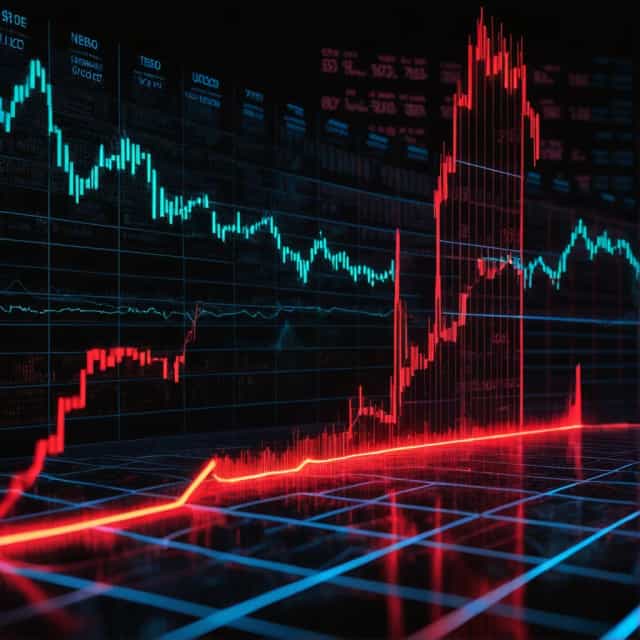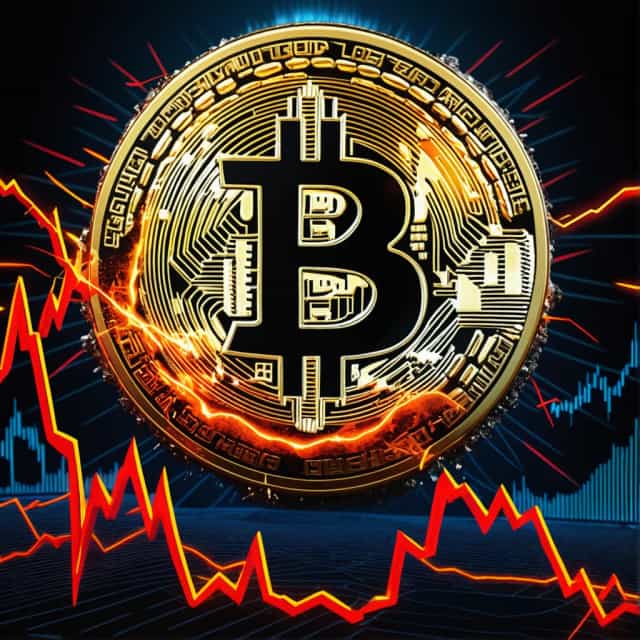
출처: Block Media
KOSPI Declines Amid U.S. Shutdown and Intensified U.S.-China Trade Disputes
The KOSPI index, which recently crossed the historic 3,600-point threshold during intraday trading after a long holiday, entered a phase of consolidation, reflecting the dampened investor sentiment caused by an ongoing U.S. government shutdown and escalating trade conflicts between the U.S. and China.
As of 9:25 a.m. on October 13, KOSPI dropped 1.49% (53.88 points) to settle at 3,556.72, according to data from the Korea Exchange. The index opened lower at 3,550.08, falling 1.68% (60.52 points) from the previous session’s close of 3,610.60, and deepened losses in early trading.
The prior session marked a significant milestone for KOSPI as it reached all-time highs, buoyed by gains in tech giants like Samsung Electronics and SK Hynix. However, the momentum faded as profit-taking set in, compounded by escalating anxiety over U.S.-China trade relations, which turned into a critical catalyst for the selloff. During the session, the index experienced drops exceeding 2% at its lowest point.
Escalating Trade Concerns: Rare-Earth Tensions Stoke Volatility
Han Ji-young, a researcher from Kiwoom Securities, highlighted heightened market jitters spurred by U.S. President Trump’s remarks concerning rare-earth elements. “President Trump criticized China’s dominance in rare-earth materials, announced plans for additional large-scale tariffs, and ruled out meeting Chinese President Xi Jinping at the upcoming APEC summit in late October. Markets had previously downplayed U.S.-China trade tensions, but these developments seem to have reignited fears,” Han explained.
Trading activity demonstrated contrasting patterns amongst key investor groups. Individual and institutional investors emerged as net buyers, acquiring stocks worth 1.94 trillion won and 955 billion won, respectively. On the other hand, foreign investors exercised caution, becoming net sellers to the tune of 2.87 trillion won.
From a sector perspective, the majority of industries posted losses, with a few exceptions. Bright spots included metals (+1.79%) and transportation equipment and parts (+0.07%). Conversely, key sectors like food and beverage (-0.66%), paper and timber (-0.69%), and non-metallic minerals (-0.29%) saw declines.
Among major blue-chip stocks on KOSPI, Doosan Enerbility (+1.21%) and HD Hyundai Heavy Industries (+1.75%) showed resilience, standing out as rare gainers amidst a turbulent session. In contrast, heavyweights such as Samsung Electronics (-3.18%), SK Hynix (-4.91%), and Hanwha Aerospace (-0.77%) bore the brunt of the selling pressure.
Semiconductor Sector Braces for Samsung’s Q3 Earnings
“Samsung Electronics’ Q3 earnings report is being closely watched within the domestic market,” noted Han Ji-young. “The recent surge in its stock price suggests strong anticipation of an earnings beat. However, debates surrounding the AI bubble in the U.S. market make it essential to monitor the performance of global semiconductor leaders like ASML and TSMC. These results will offer valuable context on whether AI-driven demand and improved profitability in the chip market remain sustainable.”
KOSDAQ Index Tracks KOSPI’s Decline Amid Individual Investor Selloff
The downward trend extended to the KOSDAQ index, which dropped 0.88% (7.56 points) to 851.93. The index opened at 845.76, marking a 1.60% (13.73 points) decline from the previous close of 859.49, and continued to weaken throughout the session.
On KOSDAQ, individual investors turned net sellers, offloading shares worth 47.4 billion won. Meanwhile, foreign and institutional investors bucked the trend by purchasing 40.1 billion won and 12.8 billion won, respectively.
Sectoral performance in KOSDAQ revealed mixed results. Gains were recorded in miscellaneous manufacturing (+2.07%), entertainment and culture (+0.52%), metals (+0.50%), and transportation equipment and parts (+0.05%). However, sectors like precision medical devices (-1.76%), machinery and equipment (-1.57%), and telecommunications (-1.40%) experienced sharper declines.
Regarding top-cap stocks, PharmaResearch (+1.29%) and HLB (+0.68%) stood out as notable gainers. Conversely, major laggards included Alteogen (-2.89%), Peptron (-2.49%), and Rainbow Robotics (-2.43%).
Korean Won Weakens as FX Market Mirrors Uncertainty
The uncertainties rippling through equity markets also impacted the foreign exchange landscape. The Korean won opened weaker at 1,430.0 per U.S. dollar, losing 9.0 won compared to the previous session’s close of 1,421.0. This drop reflects the broader risk-averse sentiment driven by global geopolitical tensions and economic uncertainties.
Conclusion: A Market Shaken by Intersecting Global Risks
The dual forces of U.S.-China trade tensions and the U.S. government shutdown have cast a long shadow over South Korean stock markets, with key indices like KOSPI and KOSDAQ retreating from recent highs amid heightened investor caution. While profit-taking and volatility dominated the session, the semiconductor segment remains a focal point as traders await critical earnings updates to recalibrate expectations. Across sectors and currencies, the interconnectedness of geopolitical risks and investor sentiment is on full display, signaling a critical period for both South Korean and global markets.










